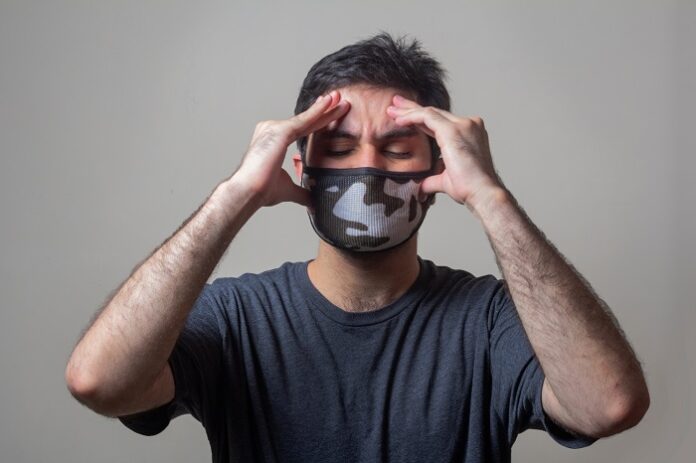Headaches can be a real nuisance in your daily life, affecting everything from your work to your well-being. This blog post aims to shed light on the five most common types of headaches you might experience, exploring their potential causes and the best ways to treat them. Whether it’s the persistent ache of a tension headache or the debilitating pain of a migraine, understanding what triggers your headaches and how to manage them effectively is key to regaining control over your health.
From simple lifestyle changes to effective home remedies, we’ll guide you through various strategies that can help alleviate your discomfort. While headaches are common, enduring them doesn’t have to be a part of your routine.
Migraine Mysteries Unravelled
Migraines, more than just headaches, are complex neurological events that can significantly impact your daily life. They often present with a throbbing or pulsating pain, typically on one side of your head. However, it’s the accompanying symptoms that set migraines apart. You might experience sensitivity to light and sound, nausea, and even visual disturbances known as aura. Understanding these symptoms is crucial in identifying your migraine patterns.
Addressing migraines involves a two-pronged approach: treatment and prevention. Resting in a dark, quiet room can provide immediate relief when a migraine strikes. There is treatment for migraines online, as well as advice from qualified pharmacists. Migraine treatments such as Migraleve and Sumatriptan tablets are specifically designed to combat symptoms and reduce both the frequency and severity of migraines.
Lifestyle factors play a significant role in managing migraines. Regular sleep patterns, staying hydrated, managing stress, and avoiding known triggers, such as certain foods or drinks, can be effective in reducing the frequency of your migraines. It’s a process of learning and adapting to understand what works best for your body. Remember, every migraine sufferer’s experience is unique, and finding your path to relief is a personal journey.
Tension Headache Symptoms and Relief Strategies
Tension headaches, the most common form of headache, can sneak up on you during a busy day. Characterised by a dull, aching sensation all over your head, they often feel like a tight band around your forehead. Unlike migraines, tension headaches don’t typically cause nausea or vomiting, and they rarely halt your daily activities. However, they can still be a bothersome presence in your life.
The causes of tension headaches are multifaceted. Stress is a significant factor; when you’re stressed, the muscles in your neck and scalp tend to tighten, leading to a headache. Poor posture and squinting can also contribute, especially if you spend long hours in front of a computer screen.
Relief for tension headaches is often found in simple, everyday actions. Regular breaks from screen time, maintaining good posture, and engaging in relaxation techniques like deep breathing or gentle stretching can work wonders. Over-the-counter pain relief can be effective, but it’s important to use these medications appropriately to avoid rebound headaches.
While tension headaches are common, they needn’t be a regular part of your life. Paying attention to your body’s cues, such as the need for rest or stress management, can help prevent these headaches from becoming a recurring issue.
Recognising the Signs of Cluster Headaches
Cluster headaches, although less common than other types, are known for their extreme intensity. They occur in cyclical patterns or clusters, which is why they’re aptly named. If you’re experiencing a sharp, very painful headache on one side of your head, often around the eye, you might be dealing with a cluster headache. These headaches are known for their sudden onset and can be alarmingly severe.
The pain from a cluster headache is often described as penetrating and burning. These headaches can awaken you in the middle of the night with intense pain in or around one eye on one side of your head. The symptoms of cluster headaches can include a watery eye, nasal congestion, or a swollen eyelid on the affected side. The duration of these headaches can be as short as 15 minutes, but they might last for hours and can recur several times a day.
Recognising these signs is crucial as cluster headaches require specific medical attention. Over-the-counter painkillers are usually ineffective against this type of headache due to their rapid onset and severe nature. If you suspect you’re experiencing cluster headaches, it’s important to consult your GP. They can provide appropriate treatments that can help reduce the severity and frequency of the attacks.
Sinus Headache Causes, Symptoms, and Home Remedies
Sinus headaches are often confused with migraines due to their similar symptoms. However, they originate from a different cause: the inflammation of your sinuses. This type of headache is usually accompanied by a feeling of pressure around your forehead, cheeks, and eyes, which worsens when you bend forward or lie down. Other symptoms include a stuffy nose, fatigue, and aching in your upper teeth.
These headaches are typically the result of a sinus infection or sinusitis, where your sinus cavities become swollen, blocking the normal flow of mucus and causing pain. Changes in weather, allergies, or infections can trigger this inflammation, leading to a sinus headache.
To alleviate your discomfort, consider some effective home remedies. Staying hydrated helps thin the mucus, easing sinus pressure. Inhaling steam, perhaps with a few drops of eucalyptus oil, can open up the nasal passages. Warm compresses applied to the pain areas can also provide relief. Additionally, ensure your environment is humidified to reduce sinus irritation.
If your sinus headache persist, it might be wise to consult your GP. They can determine if a bacterial infection is the cause, necessitating antibiotics. However, in many cases, these headaches can be managed effectively at home with simple, natural remedies.
Hormone-Related Headaches
These headaches are a significant concern, especially among women. They often correlate with hormonal fluctuations in your body, particularly during menstruation, pregnancy, or menopause. Recognising the connection between your headaches and hormonal changes is key to managing this type of headache.
These headaches can manifest as migraines, tension-type headaches, or a mix of both, and their severity can vary. During menstruation, for example, the drop in estrogen levels can trigger a headache. Similarly, the hormonal shifts during pregnancy or menopause can also lead to headaches.
Managing hormone headaches involves a multifaceted approach. Tracking your menstrual cycle can help you anticipate and prepare for potential headaches. Lifestyle adjustments, like maintaining a consistent sleep schedule, staying hydrated, and managing stress, can also mitigate their severity. Simple over-the-counter pain relief may be effective, but using them judiciously is important.
For those with severe or frequent hormone-related headaches, it’s advisable to consult your pharmacist or GP. They may suggest treatments that specifically target hormonal imbalances. In some cases, hormonal contraceptives can be an option to stabilise hormone levels and reduce the frequency of headaches.
Understanding the headaches you experience is the first step towards effective management and relief. Recognising symptoms and triggers is crucial, whether it’s the debilitating pain of a migraine, the pressure of a sinus headache, or the discomfort of a tension headache.
Each type of headache has its unique characteristics and treatments. Simple lifestyle changes, home remedies, and consulting your pharmacist or GP when necessary can make a significant difference. Remember, your well-being is paramount, and taking proactive steps to manage your headaches can lead to a more comfortable and fulfilling life. Stay informed, stay healthy.





